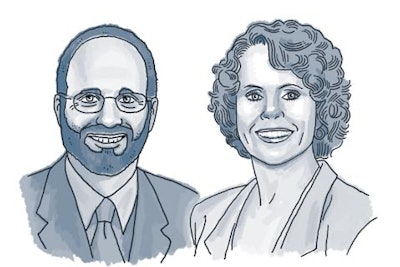
This year was a moment of possibility for anyone with an interest in or passion for sustainable meetings. For years, the Convention Industry Council’s Accepted Practices Exchange (known as APEX) has been working with ASTM International, a leading North American standards agency, to arrive at a common set of standards for environmentally sustainable events. The finished product will likely arrive by the end of this year, so 2012 will almost certainly be remembered as the year the meeting and event industry finally formalized its approach to green meetings.
It has taken thousands of hours of volunteer effort to get the standards in place, but the rewards are sweet: For the first time, the industry will be able to rely on a measurable, prescriptive, checklist-based approach to assess the sustainability of any meeting or service.
For example, to be considered sustainable, meeting venues and accommodations will have to adopt waste-management plans and divert a certain percentage of waste from landfills. To qualify under the standards, planner and supplier organizations alike will have to have sustainability policies in place.
Parallel to the APEX/ASTM standard, the International Standards Organization is developing a sustainable events management standard, ISO 20121, and the Global Reporting Initiative Event Organization Sector Supplement will provide an international framework for companies to report on their sustainability performance.
This may all seem a bit overwhelming, but don’t feel you have to take them all on at once. With a menu of standards to choose from, any meeting or event organization will be able to select the framework that best reflects its own operations and sustainability priorities, and then get started on the incremental, day-by-day changes that will gradually make our industry more sustainable.
And none too soon, because 2011 was a year in which the meeting and event profession continued to show a cascade of interest in green practices. Since it is cost-effective to integrate sustainable practices into meetings, it comes as no surprise that more and more companies are adopting them. Two major trends are hybrid events that blend face-to-face and remote audiences, and expanded use of technology to reduce the need for printed programs and handouts.
The big win is when meeting participants endorse sustainability measures. Surveys show the majority like knowing where their food is sourced and enjoy experiencing local produce and beverages. More and more attendees speak up when they don’t see recycling facilities on site.
This push is timely and essential if the industry is to maximize the benefits of its own sustainability efforts while preparing for sustainability challenges that will have a serious impact on front-line operations. Global climate change is already causing an increase in the severity and frequency of floods, hurricanes, and other natural disasters that can disrupt meetings, damage facilities, and devastate destinations. The industry can do its part to slow the pace of climate change by reducing its energy and carbon footprint, and some sustainability measures—like hybrid formats that reduce the need for travel—can help protect meetings from weather disruptions.
Along the way, the GMIC Sustainable Meetings Foundation will be ready to help meeting and event professionals along their sustainability journey. With a mission to advance sustainable practices through education, research, and innovation, the foundation has identified a short series of education and thought leadership projects it hopes to fund this year, while laying the groundwork for its first major donor development campaign.
At a time when the world’s environmental challenges seem ever more profound, our industry’s sustainability specialists are finding ways to reduce their footprint, while proving that sustainability innovations deliver measurable results that build the financial bottom line.
Mitchell Beer (@mitchellbeer) is president of the Conference Publishers in Ottawa. Amy Spatrisano is principal of Portland, Oregon-based MeetGreen. Beer is chair and Spatrisano was founding vice chair of the GMIC Sustainable Meetings Foundation.



















